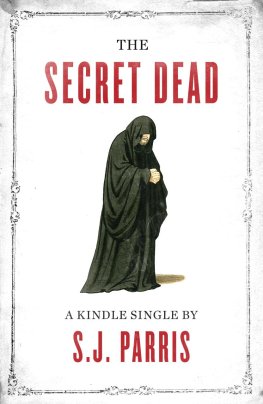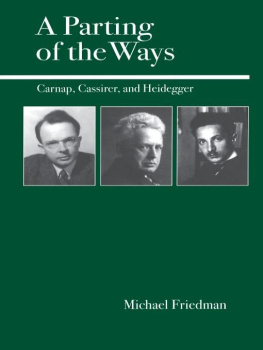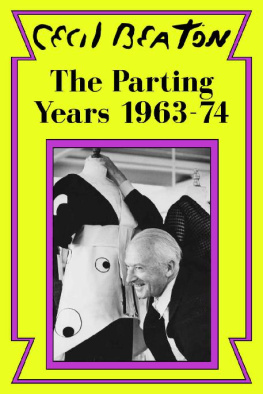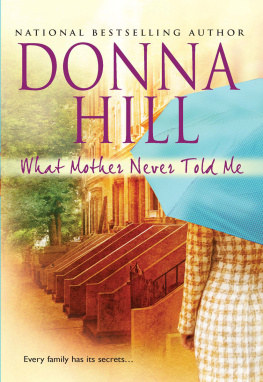Matthew Parris - Parting Shots
Here you can read online Matthew Parris - Parting Shots full text of the book (entire story) in english for free. Download pdf and epub, get meaning, cover and reviews about this ebook. year: 2010, publisher: Viking, genre: Politics. Description of the work, (preface) as well as reviews are available. Best literature library LitArk.com created for fans of good reading and offers a wide selection of genres:
Romance novel
Science fiction
Adventure
Detective
Science
History
Home and family
Prose
Art
Politics
Computer
Non-fiction
Religion
Business
Children
Humor
Choose a favorite category and find really read worthwhile books. Enjoy immersion in the world of imagination, feel the emotions of the characters or learn something new for yourself, make an fascinating discovery.
- Book:Parting Shots
- Author:
- Publisher:Viking
- Genre:
- Year:2010
- Rating:5 / 5
- Favourites:Add to favourites
- Your mark:
- 100
- 1
- 2
- 3
- 4
- 5
Parting Shots: summary, description and annotation
We offer to read an annotation, description, summary or preface (depends on what the author of the book "Parting Shots" wrote himself). If you haven't found the necessary information about the book — write in the comments, we will try to find it.
Parting Shots — read online for free the complete book (whole text) full work
Below is the text of the book, divided by pages. System saving the place of the last page read, allows you to conveniently read the book "Parting Shots" online for free, without having to search again every time where you left off. Put a bookmark, and you can go to the page where you finished reading at any time.
Font size:
Interval:
Bookmark:
MATTHEW PARRIS
AND ANDREW BRYSON
VIKING
an imprint of
PENGUIN BOOKS
VIKING
Published by the Penguin Group
Penguin Books Ltd, 80 Strand, London WC2R 0RL , England
Penguin Group (USA) Inc., 375 Hudson Street, New York, New York 10014, USA
Penguin Group (Canada), 90 Eglinton Avenue East, Suite 700, Toronto, Ontario, Canada M4P 2Y3
(a division of Pearson Penguin Canada Inc.)
Penguin Ireland, 25 St Stephens Green, Dublin 2, Ireland (a division of Penguin Books Ltd)
Penguin Group (Australia), 250 Camberwell Road, Camberwell, Victoria 3124, Australia
(a division of Pearson Australia Group Pty Ltd)
Penguin Books India Pvt Ltd, 11 Community Centre, Panchsheel Park, New Delhi 110 017, India
Penguin Group (NZ), 67 Apollo Drive, Rosedale, North Shore 0632, New Zealand
(a division of Pearson New Zealand Ltd)
Penguin Books (South Africa) (Pty) Ltd, 24 Sturdee Avenue, Rosebank, Johannesburg 2196, South Africa
Penguin Books Ltd, Registered Offices: 80 Strand, London WC2R 0RL , England
www.penguin.com
First published 2010
Copyright Matthew Parris and Andrew Bryson, 2010
The moral right of the authors has been asserted
Valedictory Despatches are covered by Crown Copyright and reproduced under the terms of the Click-Use Licence
The publishers wish to thank The National Archives for permission to reproduce the following pictures: 1 (ref. FCO 15/339); 6 (ref. FCO 8/2889); 7 (ref. FCO 7/3356); 8 and 9 (ref. FCO 33/3941); 10 (ref. FCO 7/680); 11 (ref. FCO 7/1111); and 12 (ref. FCO 93/1925)
All rights reserved
Without limiting the rights under copyright reserved above, no part of this publication may be reproduced, stored in or introduced into a retrieval system, or transmitted, in any form or by any means (electronic, mechanical, photocopying, recording or otherwise), without the prior written permission of both the copyright owner and the above publisher of this book
A CIP catalogue record for this book is available from the British Library
ISBN: 978-0-14-196295-5
Beyond retirement there can be no reprisals. Which of us does not have embarrassing memories of a works leaving-do at which (after perhaps a few drinks too many) the departing colleague decides to say a few words; and says a little too much: really lets rip? It may be venomous, it may be melancholy, it may be mawkishly affectionate or it may take the boss apart, but what distinguishes these occasions is that an individual, offered the chance to take a parting shot, has blurted out all the things he or she always wanted to say about the job, about colleagues, about customers, about the business, or about life generally: things that can now be said without fear of disapproval.
HM Diplomatic Service has, over the centuries, learned to civilize the practice in a most unusual sort of essay. Its an extraordinary beast, called the Valedictory Despatch. How we tracked the beast to its lair you may read in my co-editors Notes on the Material, at the end of this book a chapter I recommend looking at before you turn to the material itself, as it sets the species in context. And these animals, surviving into the Millennium, have recently become extinct, hounded from existence by thin-lipped Whitehall mandarins and a vengeful Foreign Secretary.
The creatures in question were simply called valedictories in the FCO. As you will read within, they and a centuries-old tradition came to an effective end in 2006 when Margaret Beckett was Foreign Secretary, and some exasperated remarks about the bullshit bingo of the new management-consultancy ).
I thought it was a splendid tradition, Lord (Chris) Patten, the last Governor of Hong Kong, told us: Its important to remember that the final telegram from an ambassador at the end of his career represents the mountain top in this cultural exercise. Lord (David) Owen called the ban absurd one more of those dreadful PC behaviours inflicted on us, flattening out individuality
But, said Denis MacShane, a Foreign Office minister under the late Robin Cook, the days when, once a week, an ambassador would go into a darkened room and write an essay as if they were competing for a Fellowship at All Souls are gone. What a pity.
But perhaps we should in part blame this sad demise on the very instrument by which we have been able to extract many of the despatches youll read here from locked archives of material classified under the Official Secrets Act. The Freedom of Information Act has been our tool. Now we have it, For Your Eyes Only is an instruction in which no modern diplomat can any longer place confidence, and it is precisely because most valedictories were more embarrassing than they were threats to national security, that the FCO cannot block their release by using the exceptions allowed to the Act. Yet valedictories, though they were often formally and elegantly printed, and given a circulation wide enough to include (sometimes) Buckingham Palace and the Bank of England, were inherently private documents, written in a personal and private style, for a knowing audience of sometimes-cynical insiders. Paradoxically, they were the more relaxed, indiscreet, knockabout and broad-brush because of it.
I was twenty-five when I read my first. Id just joined the Foreign and Commonwealth Office, and was serving as a junior officer in Whitehall on the Foreign Office desk dealing with the Scandinavian countries. I read the wires; I opened the post; mine were often the first eyes to see the material arriving from abroad in the FCOs big, Wandsworth-prison-sewn diplomatic bags. And every so often would arrive a despatch that was different from the others, awaited with interest, and as often as not circulated fast and with relish. This would be a valedictory, and addressed (in form, at least) direct to the Foreign Secretary, though not all were read, or even shown, at that altitude. The valedictories I processed included final despatches from an ambassador leaving his present post but moving on to another one; and also the more exceptional type of valedictory: a diplomats last, before he left the Foreign Office for retirement.
In came one such from our retiring ambassador in Oslo. I chortled as I read. His letter was a tirade against the difficulties British diplomats labour under; he warned of the dangers of drink; he recommended regular exercise; he lamented that he had to get up at dawn when VIPs from Britain stayed at the Residence, check whether theyd left shoes outside their rooms and, if so, clean them himself because you just couldnt get the staff in Norway. I thought this despatch oddly compelling, and argued with my colleagues for its wide circulation and was overruled: colleagues thought the despatch rather silly.
But I remembered that elegantly eccentric little essay on Service life and have managed to find it again, for this book.
) as Confidential or Restricted, talking often astonishingly frankly about the country theyve been posted to, its inhabitants and its politicians.
They may turn their fire on their own colleagues too, if they wish or even on their own government, country or countrymen. They may complain about conditions of service, or lavish praise on their long-suffering spouse. Nothing from the President, to the economy, to the local cooking, to the drains is off limits. As custom has it the letter is printed and circulated often quite widely within the Foreign and Commonwealth Office and beyond. Then its locked away in Classified FCO files.
When the post the valedictory-writer is quitting is his or her last before retirement, the missive can be particularly frank or funny, or sad. British diplomats are often accomplished stylists, and ambassadors (knowing their valedictory will get a wide and interested audience) can take tremendous care to make it good.
Font size:
Interval:
Bookmark:
Similar books «Parting Shots»
Look at similar books to Parting Shots. We have selected literature similar in name and meaning in the hope of providing readers with more options to find new, interesting, not yet read works.
Discussion, reviews of the book Parting Shots and just readers' own opinions. Leave your comments, write what you think about the work, its meaning or the main characters. Specify what exactly you liked and what you didn't like, and why you think so.











